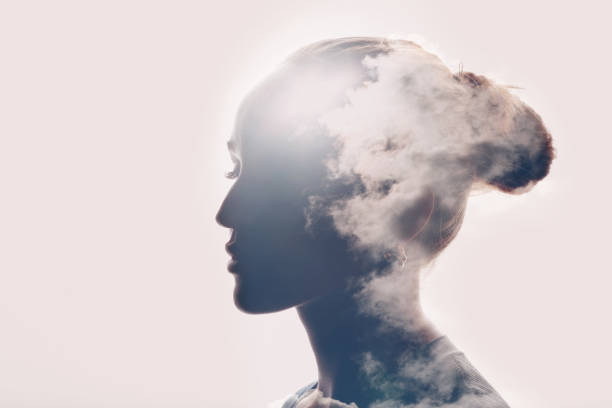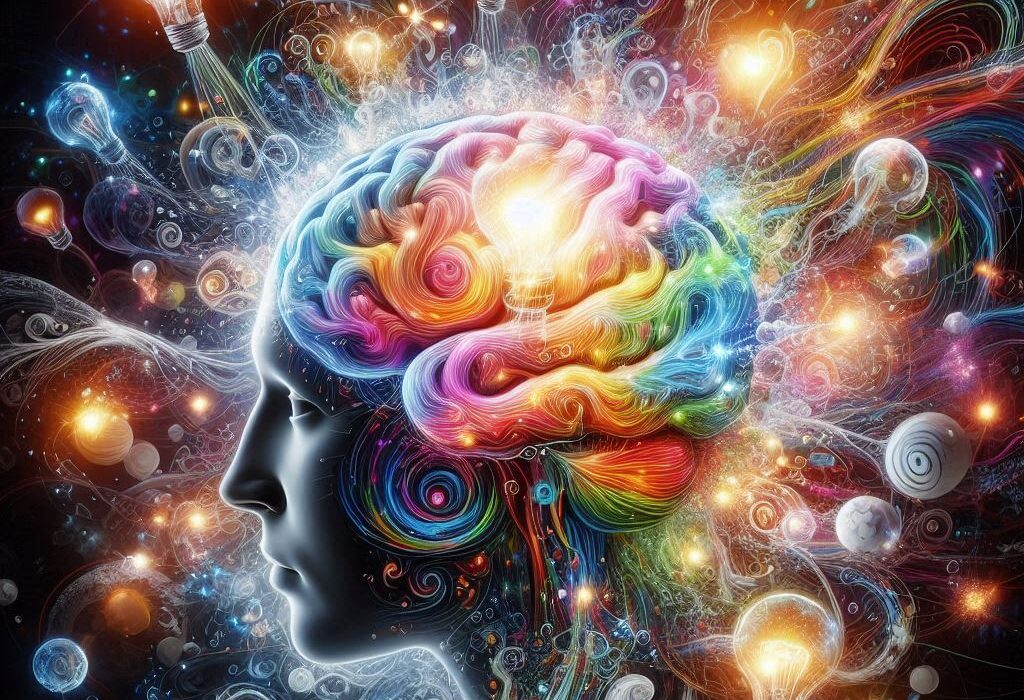It often begins in the quietest moments. You fail a test. You forget a name. You stumble during a presentation. You make a mistake that others notice — or perhaps only you notice, but that’s enough. You feel the sting. A voice echoes in your mind, sharp and certain: “You’re just not good at this.”
The room is still. The moment passes. But something in you changes. A subtle folding-in. A quiet conclusion. “Maybe I’m not cut out for this.” The next time the opportunity arises, you hesitate. You avoid. You retreat.
From the outside, it looks like caution or self-preservation. But beneath the surface, something deeper is happening. You’ve fallen into a cognitive trap — one that silently tightens its grip and shapes your choices, beliefs, and potential.
It’s not just you. This trap is universal. It’s written into the way human brains process the world. It protects us, yes, but at a cost: it locks the door to growth and throws away the key — unless we learn to see it.
The Hidden Saboteur: Fixed Thinking Masquerading as Truth
The mind is a master storyteller. Its job is to make sense of the world quickly and efficiently, to recognize patterns and assign meaning. But it’s also susceptible to errors — not because it’s broken, but because it evolved for survival, not perfection.
One of the most dangerous mental errors is the belief that our abilities, intelligence, or personality traits are fixed. That they’re carved in stone. That failure is a diagnosis, not data.
This trap is so common that it has a name in psychology: the fixed mindset, a concept popularized by psychologist Carol Dweck. But its roots go far deeper than a theory — it is embedded in childhood praise, social norms, cultural narratives, and evolutionary wiring.
We believe what we experience. If we try something and struggle, the brain concludes, “This is hard because I’m not good at it.” It feels like truth. But it’s actually a learned reaction — one that shuts the door to possibility before it ever opens.
This is the cognitive trap that keeps us from growing.
The Evolution of Fear: Why the Brain Avoids Uncertainty
To understand this trap, we have to look backward — not just to childhood, but to deep evolutionary history. For most of human existence, survival depended on avoiding danger. The brain evolved to be wary of risks, especially social risks.
To fail in front of others could mean exclusion. To be seen as incompetent could mean being left behind. The modern world rarely punishes mistakes with exile or death, but the brain doesn’t know that. It still interprets rejection or failure as existential threats.
So it builds defenses. It tells us not to try. It convinces us that some things just “aren’t us.” It whispers that it’s better to stay safe than to risk being exposed as a fraud.
This protective mechanism is ancient and understandable. But in a world that demands adaptation, creativity, and lifelong learning, it becomes a prison.
We don’t avoid challenges because we’re lazy. We avoid them because our brains confuse growth with danger.
The Lie of Talent: How We Mistake Beginnings for Limits
From an early age, society teaches us to believe in talent. The fast learner, the gifted child, the “natural.” These labels seem innocent — even encouraging — but they plant a dangerous seed: the idea that ability is innate and visible early.
What we rarely see is the invisible labor behind mastery. The years of practice, failure, repetition, and discomfort that precede greatness. Because the process is hidden, we assume the product came easily. And when our own efforts don’t measure up instantly, we assume we’re missing some essential quality.
This is the trap: we judge our potential based on early performance. We assume that struggle is a sign to stop, rather than a signal to continue.
In truth, talent is a beginning, not a destiny. What looks like ease is often disguised effort. The brain, like a muscle, grows with use. But if we believe growth isn’t possible, we never give it the chance to happen.
Feedback as Threat: The Fear of Being Seen
Another powerful dimension of the cognitive trap is how we respond to feedback. In a fixed mindset, feedback isn’t information — it’s judgment. It’s not “this didn’t work,” but “you aren’t good.”
This perception is not logical. It’s emotional. When the brain is operating from a fixed framework, any critique feels like a threat to identity. We defend, deny, or disengage. We avoid the discomfort of being seen as less than perfect.
And yet, this avoidance robs us of the very thing we need most: insight.
Feedback is one of the fastest paths to growth — but only if we see it as a tool rather than a verdict. That shift requires a different mindset, one rooted not in protection, but in curiosity.
The Growth Mindset: Rewriting the Inner Script
To escape the trap, we must challenge the very stories we tell about ourselves. This isn’t easy. The fixed mindset feels safe because it offers certainty. But certainty is a poor substitute for possibility.
The growth mindset begins with a different assumption: that abilities can change. That effort matters. That failure is not the end of the story, but part of it. This isn’t wishful thinking — it’s grounded in neuroscience.
Studies show that the brain remains plastic — capable of change — throughout life. New neural pathways form when we struggle. The act of trying, failing, adjusting, and trying again is literally how we grow.
But the mindset shift is more than science. It’s a psychological revolution. It changes how we interpret discomfort. It turns “I can’t do this” into “I can’t do this yet.” It transforms failure from a mirror into a map.
And over time, it reshapes identity.
The Inner Critic: Learning to Disarm the Voice That Doubts
Inside every human mind is a voice — sometimes loud, sometimes subtle — that questions, critiques, and diminishes. “You’re not smart enough.” “You’ll look stupid.” “They’ll see you fail.”
This voice is not a flaw. It’s a defense mechanism. It wants to keep us from harm. But in doing so, it also keeps us from experience. From learning. From joy.
Disarming the inner critic doesn’t mean silencing it completely. It means noticing it. Naming it. Realizing that it is not truth, but a pattern.
When we separate the voice from reality, we regain power. We can say, “That’s fear talking. Not fact.” We can step forward anyway. Growth begins when we learn to live alongside doubt without being ruled by it.
The Reward of Risk: Why Growth Requires Discomfort
There’s a paradox at the heart of human development: everything we want — confidence, skill, resilience, creativity — lies on the other side of discomfort. And yet, everything in us is wired to avoid it.
This is the cost of growth: it feels bad before it feels good. It looks messy before it looks graceful. There is no shortcut.
But there is a secret: the discomfort is not a signal of failure. It’s the signal of change. Neuroscience confirms that learning feels hard because the brain is building new pathways. The very thing we interpret as a problem is actually progress.
When we learn to embrace the awkwardness, the frustration, the not-knowing, we reclaim our power. We become apprentices of growth, rather than prisoners of perfection.
Culture and the Trap of Comparison
In the age of social media, the fixed mindset finds fertile ground. We are bombarded with curated success — polished outcomes without visible process. We see others winning and assume we’re falling behind. We compare our insides to their outsides, and the gap seems unbridgeable.
This fuels the cognitive trap. We forget that everyone is struggling somewhere. That confidence is often practiced, not felt. That behind every triumph is a trail of failures too ordinary to post.
To grow, we must step off the stage. We must let go of performance and return to process. Real growth is quiet, patient, unglamorous. It’s the hours no one sees. The tiny improvements. The choice to try again.
The brain doesn’t grow by comparison. It grows by experience. And experience happens in real time, not highlight reels.
Reclaiming Agency: The Small Choices That Change Everything
One of the cruelest effects of the cognitive trap is that it makes us feel helpless. If we’re “just not good at it,” what’s the point of trying?
But this illusion of helplessness is just that — an illusion. We always have agency. Not over outcomes, but over effort. Not over talent, but over strategy. Not over past experience, but over present response.
Each time we choose to try again, we weaken the trap. Each time we see failure as feedback, we reclaim control. Each time we prioritize curiosity over fear, we take a step toward freedom.
Growth is not a single leap. It is a thousand small decisions, made in the dark, with no guarantee — but with hope.
Becoming Someone New
The most radical truth in all of psychology is this: you are not a fixed thing. Your brain is not a machine with set parameters. It is a living system, capable of change. Who you are today is not who you must be tomorrow.
This is both terrifying and thrilling. Terrifying because it means we must let go of the comfort of limits. Thrilling because it means we can become someone new.
Not by magic. Not overnight. But through effort, awareness, and a willingness to confront the stories that keep us small.
The cognitive trap is powerful. But it is not permanent. It is built on assumptions. And assumptions can be questioned.
What might you become if you believed growth was possible? What would you try if you didn’t need to be good right away? What if struggle was not evidence of inadequacy — but proof that you were learning?
The Mind, Untrapped
Somewhere inside you, there is a part that is not afraid to fail. A part that is more curious than cautious. A part that remembers how to play, how to experiment, how to grow.
That part has been buried by fear, by shame, by misinterpretation. But it is still there.
And it is waiting for you to set it free.
Not by changing who you are — but by changing what you believe is possible.
When you do, the trap begins to loosen. The mind begins to open. And your future begins to expand.
Not because you’ve become someone different — but because you’ve finally become yourself.






